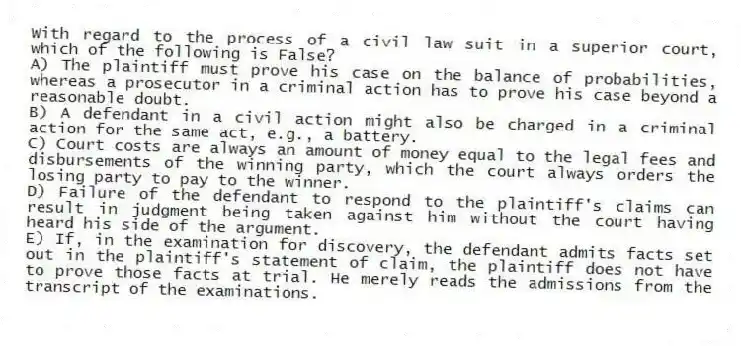
With regard to the process of a civil law suit in a superior court, which of the following is False?
A) The plaintiff must prove his case on the balance of probabilities, whereas a prosecutor in a criminal action has to prove his case beyond a reasonable doubt.
B) A defendant in a civil action might also be charged in a criminal action for the same act, e.g., a battery.
C) Court costs are always an amount of money equal to the legal fees and disbursements of the winning party, which the court always orders the losing party to pay to the winner.
D) Failure of the defendant to respond to the plaintiff's claims can result in judgment being taken against him without the court having heard his side of the argument.
E) If, in the examination for discovery, the defendant admits facts set out in the plaintiff's statement of claim, the plaintiff does not have to prove those facts at trial. He merely reads the admissions from the transcript of the examinations.
Correct Answer:
Verified
Q41: Which of the following is true with
Q45: (Modify this question for your province.) Which
Q47: A privative clause is which of the
Q48: Which one of the following statements is
Q50: In the procedure leading to trial of
Q51: When a government administrator refuses to make
Q52: Which of the following statements is correct
Q56: If the court finds the defendant liable
Q58: Joe approached a provincial government clerk and
Q60: Which of the following is correct with
Unlock this Answer For Free Now!
View this answer and more for free by performing one of the following actions

Scan the QR code to install the App and get 2 free unlocks

Unlock quizzes for free by uploading documents